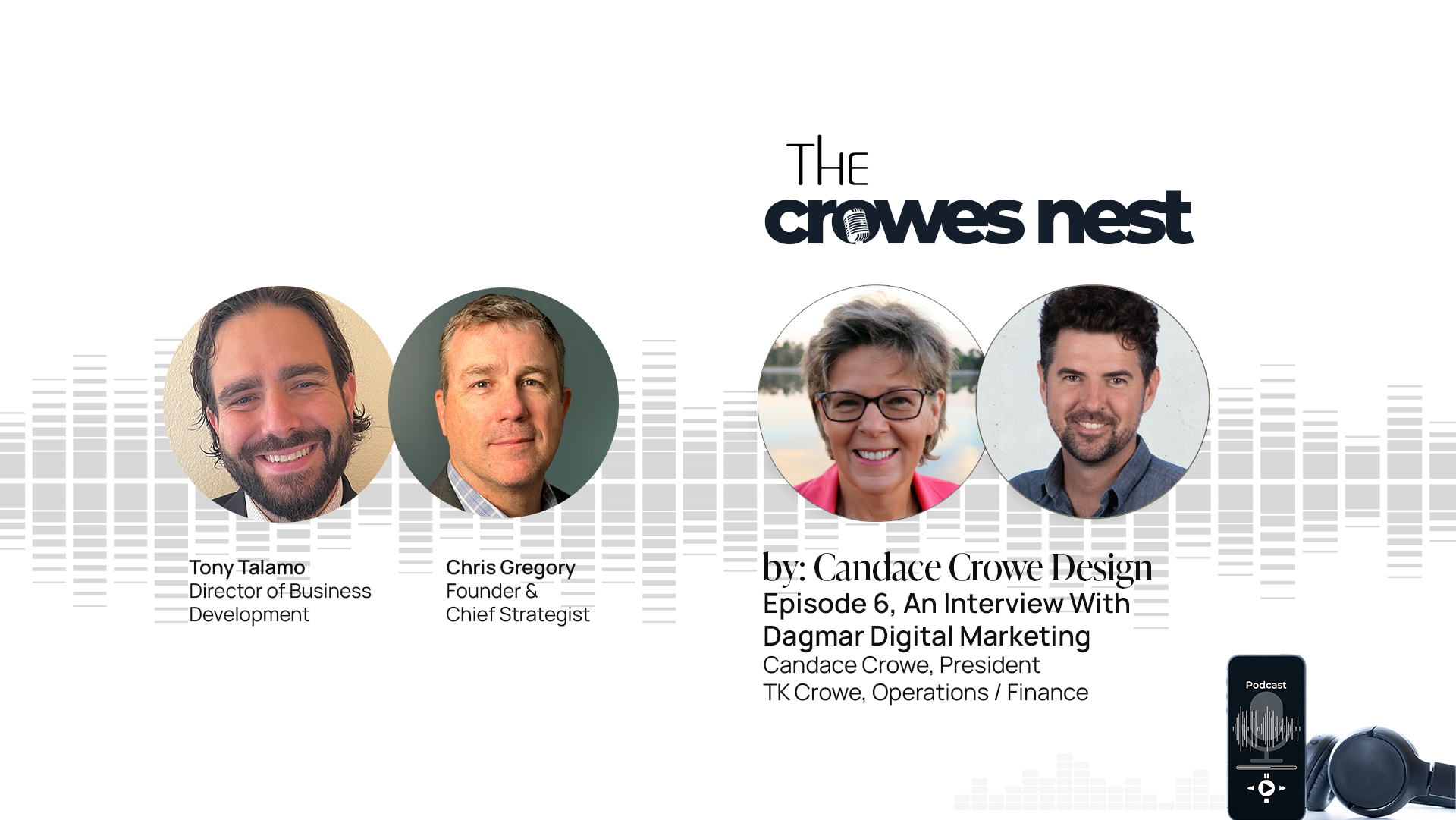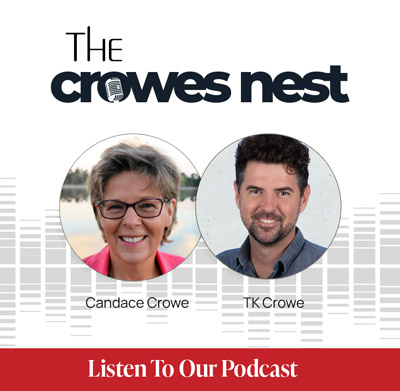About Dagmar Marketing:
At DAGMAR Marketing, we do digital marketing differently — we put solid marketing principles first. By approaching your SEO and PPC campaign strategies from the perspective of your business needs, the customers you want to attract, and your goals for the future, we can create sustainable digital marketing programs that give you superior ROI. Our optimization and advertising plans are completely customized, building on the resources you have and integrating our capabilities with those of your marketing and IT teams.
DAGMAR stands for Defining Advertising Goals and Measuring Advertising Results and is the #1 option for plastic surgery SEO nationwide.
About Chris Gregory – Founder and CEO of Dagmar Marketing:
Chris Gregory founded DAGMAR Marketing in 2011 and has since been directing the agency’s SEO efforts. Chris is a lover of data and crafting marketing strategies tailored to his clients’ needs. He is a Certified Master SEO and serves as an SEO mentor for Market Motive. His extensive background in sales and marketing includes roles in sales management for a leading network communications company and operations management for an online business directory publisher.
About Tony Talamo- Director of Business Development at Dagmar Marketing:
Tony began his digital marketing career in 2013 writing title tags and meta descriptions for a high-volume business. His fascination with aesthetic practices and SEO grew as he observed its significant impact on business growth and success. Over the years, Tony advanced from customer service roles to account executive positions before joining DAGMAR. Tony oversees new business opportunities and tailors digital marketing service mixes to meet prospective clients’ needs.
About Candace Crowe Design:
Candace Crowe Design is a design and software company that has specialized in marketing for the aesthetic industry since 1999. CCD is known for its industry knowledge, BRAG book, and Advantage Play®. BRAG book is the most robust plug-and-play before & after gallery in the industry and celebrated its 11th year anniversary in the Spring of 2024! They have serviced over 500 clients across the U.S. and Canada. Family-owned.
Brands: Digital Signage – Advantage Play; E-Mail Marketing – Advantage Mail; Digital B & A Gallery – BRAG book
Podcast Summary:
In today’s competitive digital landscape, securing a strong online presence is more crucial than ever, especially for industries as visually oriented as aesthetics and plastic surgery. SEO master and CEO of DAGMAR Marketing shares that success hinges on striking the right balance between captivating design and functional SEO-friendly content.
While it is tempting to prioritize design, overlooking SEO fundamentals can significantly hamper your website’s performance. This podcast delves into essential strategies to optimize your site, from avoiding common pitfalls in before and after galleries to leveraging cutting-edge AI tools and a peek behind the curtain of Google’s evolving algorithm.
1. Design Is Not Enough, Don’t Let Your Ego Get in the Way of Good SEO.
Many clients find themselves panicking after a website redesign leads to plummeting traffic and rankings. The culprit is often a shift from essential, service-related content to flashy design elements that hinder SEO. Patients visit your site seeking information on procedures and doctors, not just impressive visuals.
Navigation links for key patient information should be in plain sight. Ignoring schema, page speed, and a lack of diverse and quality content will hinder your website’s performance. Trends like video backgrounds may appeal visually but slow down page speed, negatively affecting rankings. Many agencies will appeal to clients’ vanity with extravagant displays, but focusing on patient information is far more valuable. A competitor’s website is only a back-click away, so it is imperative to design your site with the patient’s journey in mind, keeping the brass tacks of your practice front and center. An informative, user-friendly website will serve your practice better than one filled with flashy embellishments.
2. Knee Jerking Is the Death of a Good SEO Campaign.
Viewing SEO with a short-term perspective severely undermines your efforts. SEO thrives on diverse, quality content, which often takes 3-6 months to develop and even longer to yield noticeable results. A stable SEO strategy requires time for data analysis and informed adjustments. Knee-jerking before giving your strategy a chance to perform makes your investment in vain. For example, an e-commerce client may zero in on a monthly sales dip and demand an immediate strategy shift, but constantly redirecting creates a volatile environment where SEO cannot thrive. Dips in sales can result from various factors outside of SEO. As long as you are working with a reputable marketing agency, trust the process and stick around to watch your SEO campaign take off.
3. AI’s Not Going to Replace You, but You May Be Replaced by Someone Using AI.
In 2022, Google warned that using AI-generated content could negatively impact SEO. The sheer volume and speed at which AI produces content is daunting to Google, which already struggles to crawl the abundance of content digital marketing companies pump onto the web. The rise of AI-generated content only exacerbates this issue. However, it is worth noting that Google has recently changed its tune regarding AI-generated content’s impact on SEO. Now Google claims quality content regardless if AI or human-generated content will be rewarded. Blindly relying on AI for content creation is still not advisable, but approaching tools like Chat GPT or Copilot as a “prompt engineer” can yield decent-quality content. Although editing and fact-checking are still required to achieve optimal quality.
When it comes to SEO performance and generative AI searches, such as Google’s Gemini, it is important to remember this is a moving target. One thing we do know today is that generative AI scrapes websites extensively, providing direct answers to users, no longer requiring them to click through a site themselves. This shift reduces a common SEO metric; website click-through rates. The best way to adapt is to saturate your site with quality informative content and implement FAQs on each page. This answer-driven content will satisfy both traditional Google searches and generative AI. Embracing AI tools while maintaining high-quality content standards will safeguard your website in this evolving landscape.
4. Little Known Facts About B&A Galleries.
Before and after galleries are an invaluable tool for securing new patients. When built correctly, they also appeal to the algorithm. The most common SEO pitfall of B&A galleries are pages that exclusively contain images that are then multiplied, giving each image in the gallery their own page. Thousands of pages on your website containing only images may lead to a lower website quality score overall. To avoid this, add titles, detailed descriptions, and accurate alt text to each image page. Since a site’s quality score is determined by every page, it is crucial to avoid these practices to prevent your site from being devalued by Google.
5. It’s Not Porn – It’s Nudity!
Well-structured before and after galleries can significantly boost SEO, but in a field where nudity is commonplace, it is crucial to be as descriptive as possible. Google devalues sensitive information and may not be able to distinguish between medical images and pornography. To avoid your before and after gallery’s content being flagged and even penalized by the algorithm, use detailed titles, alt text, and schema markup to provide context for Google. Avoid non-descriptive names like “Image #x,” as these offer no valuable information. Properly marked-up galleries not only prevent being classified as “thin content” but also improve your chances of appearing in image search results, driving new clients to your site. An 18+ disclaimer, while not proven to affect SEO, shows responsibility and will reflect well on your practice.
6. Future-proof Your Website by Using Quality Content.
Quality content has become far more important than backlinks over the past 7-8 years. While Google may not be as advanced at detecting quality content as we thought, we do know it rewards diverse and informative material, including videos, bullet points, and properly structured headings. Many agencies shy away from creating quality content due to the creativity, budget, and time required to do so, but the algorithm increasingly favors it. Investing heavily in links is not a future-proof strategy, as Google continually tweaks its algorithm. Instead, focus on producing rich, engaging content within your budget and supplement it with topical links. Google rewards what appears organic, so ensure all links added to your site are relevant to the page they are embedded on. Unnatural or overly scaled linking practices may be penalized. Prioritize diverse quality, informative, and authentic content to safeguard your site’s future.
7. What We Can Learn From the Google Core Leak and Their Anti-trust Case.
The recent Google Core update leak has provided digital marketing agencies with valuable insights, confirming many of our suspicions. A key revelation from the leak is Google’s API, which includes fields and naming conventions used by Google. By understanding these conventions, we can reverse engineer key points that Google prioritizes. This has shown an emphasis on events and engagement metrics. Additionally, it was confirmed that every website has a quality score that encompasses the entire site, not just the homepage or landing page. This score is influenced by a myriad of factors, such as page speed, schema, and topical depth. Knowing that Google values an entire website’s holistically means that we can not rely on one tool for SEO or a single page to carry the SEO ranking of a website.
Another bombshell: Google admits in the anti-trust case it is more challenged at detecting quality content and relevancy than we thought. Using schema markup, such as linking your name, address, and phone number to your Google My Business profile, can help combat Google’s limitations in detecting and interpreting quality content. This strategy clearly defines pertinent information about your practice, builds trust with Google, and in turn enhances SEO. Although doctors cannot directly access their quality scores, third-party tools can provide insights into domain authority, which allows you to gain insight on if the links on your site are serving your SEO well.
Conclusion
Navigating the complexities of SEO requires a nuanced approach that balances design, quality content, and strategic planning. Avoiding common pitfalls, understanding the evolving algorithms, and leveraging AI tools appropriately can significantly enhance your website’s performance. By focusing on diverse, high-quality content and meticulously managing your site’s structure, you can build a robust online presence that stands the test of time. Embrace these strategies to ensure your site remains competitive and continues to attract patients.
In the dynamic world of digital marketing, especially within the aesthetics and plastic surgery fields, staying ahead requires continuous adaptation and a keen understanding of both user needs and algorithmic changes. By implementing these best practices and maintaining a focus on quality content, you not only enhance your SEO performance but also provide a superior user experience. Remember, a well-optimized, informative, and user-friendly website is the cornerstone of a successful online strategy. Keep evolving, stay informed, and your efforts will undoubtedly pay off in the long run.
SEO Glossary:
APIs (Application Programming Interfaces): An API is a set of protocols, routines, functions, and commands that programmers use to facilitate interaction between different software systems. APIs allow one software service to access data from another without needing to know the internal workings of the other service. For example, an e-commerce website might use an API to access shipping information from a postal service. APIs are crucial for integrating different software systems and services seamlessly (Source: Techopedia)
Backlinks: Backlinks, also known as inbound or incoming links, are links from one website to a page on another website. Google and other major search engines consider backlinks as votes for a specific page. Pages with a high number of backlinks tend to have high organic search engine rankings. Backlinks are crucial for SEO because they signal to search engines that other websites vouch for your content (Source (Techopedia).
PPC (Pay-Per-Click): PPC is an online advertising model in which advertisers pay each time a user clicks on one of their online ads. Common types of PPC ads include search engine advertising, where advertisers bid for ad placement in a search engine’s sponsored links when someone searches for a keyword related to their business offering. This model helps businesses drive traffic to their websites in a controlled, measurable way ( SourceTechopedia).
Website Quality Score: From Google: Google’s internal metric of the overall quality of a website and is based on multiple factors such as site speed, content quality, and various user metrics.
Schema: Schema markup is a form of microdata that creates an enhanced description (or rich snippet), which appears in search results. By adding schema to your HTML, you can improve the way your page is represented in SERPs (Search Engine Result Pages) by helping search engines understand the content of your website more effectively. This can include details like reviews, events, and other rich information (Source Techopedia).
Thin Content: Thin content refers to web pages that offer little or no value to the user. This includes pages with very little useful information, pages with copied content, or pages that exist solely to manipulate search engine rankings without providing significant value to the visitor. Google considers thin content to be of low quality, and such pages can negatively impact a site’s search engine rankings. (Source: Google Search Central)




